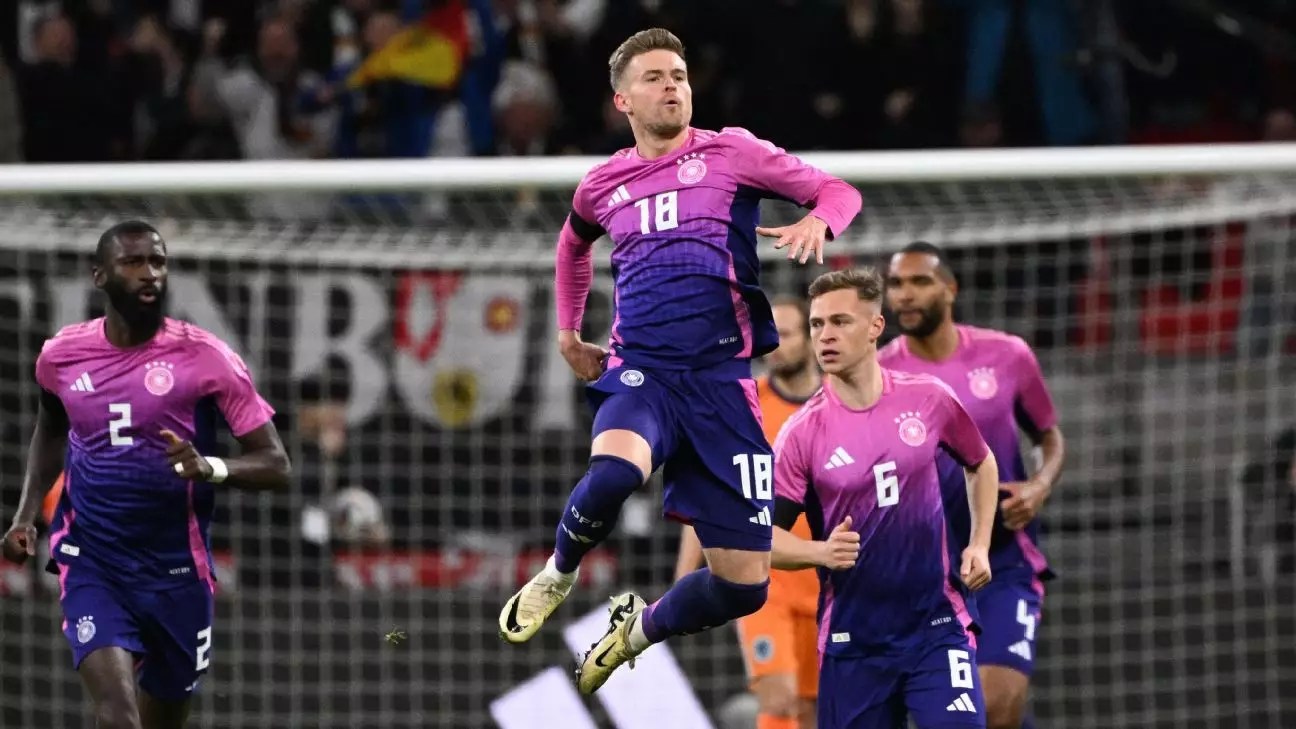The upcoming 2024 European Championship will be Germany’s first major event on home soil since the 2006 World Cup. However, the lack of excitement surrounding the team is evident among fans, players, and coach Julian Nagelsmann. Despite this, the recent friendly win against Netherlands showcased a different approach by Nagelsmann, opting for a simplistic and pragmatic style rather than flashy schemes.
In contrast to previous matches that featured experimental tactics, Nagelsmann chose to adopt a straightforward 4-2-3-1 system for the recent games. This decision reflected a shift towards simplicity and familiarity, allowing the players to focus on their natural roles and play without unnecessary complications. Nagelsmann’s choice to maintain consistency in the lineup also deviated from the norm of national team coaches rotating players, emphasizing his trust in the selected XI.
One of the notable aspects of Nagelsmann’s approach was his decision to recall 34-year-old Toni Kroos, who had previously retired from international duty. This move, along with the inclusion of players like Robert Andrich, highlighted Nagelsmann’s preference for experience and reliability over flashy names. Despite criticisms of entitlement, Nagelsmann’s willingness to look beyond reputation and consider the contributions of lesser-known players demonstrated a pragmatic mindset.
The tactical setup employed by Nagelsmann focused on utilizing the strengths of the squad, such as the midfield trio of Kroos, Ilkay Gündogan, and Robert Andrich. By emphasizing possession and strategic positioning, Nagelsmann aimed to maximize the team’s capabilities without relying on complicated game plans. The team’s performance against France and the Netherlands highlighted the effectiveness of this approach, resulting in two significant wins.
Julian Nagelsmann’s pragmatic approach to coaching the German national team reflects a departure from previous experiments and a return to basics. By prioritizing simplicity, consistency, and practicality in his tactics and player selection, Nagelsmann has shown a willingness to adapt and evolve based on the team’s strengths. Despite initial doubts and criticisms, Nagelsmann’s approach could prove to be a successful formula for Germany’s upcoming campaign in the 2024 European Championship.


Leave a Reply